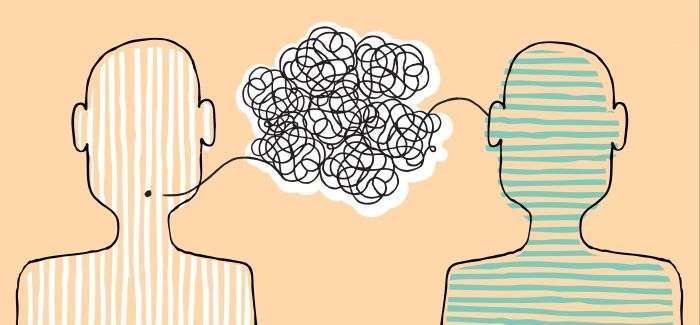The Hollow Language of Jargon
And Then There Was the Word: A Column About Our Language
People don’t want to sound stupid—they want to sound intelligent, well educated, and brilliant. One of the many ways they try to do this is by using long words, lots of intelligent-sounding syllables, and the proper “in” jargon, when often all that does is add a bunch of empty syllables to their communiques. In speech or writing, most experts advise, we should aim for concision (or, more clearly, “conciseness”), and we should try to get the lead out. That is, we should try to remove any hollow, meaningless, or redundant syllables from our writing or speech.
Jargon is the language of a profession or a particular group. The Google online dictionary says that jargon is “special words or expressions that are used by a particular profession or group and are difficult for others to understand.” The last phrase is key: if you are not talking to a group of papermakers, don’t use words like furnish, shadowmark, couching (pronounced “kooching”), or chainlines. We can dispense with jargon for this column since the specialized language would leave an audience outside that special group in the dark.
But there are all kinds of other opportunities to sound intelligent while filling your writing with hot air. Look at this sentence: “I studied the ways in which the Mayans prepared food.” Take out “the ways in which” and put in “how”: “I studied how Mayans prepared food.” One word instead of four—and no change in meaning. Here’s another: “He is a man who is on the right track.” Change that to “He is on the right track,” since we already know from context that “he is a man.” “I am the one who will be going to the store.” Better: “I will be going to the store” (or “I will go to the store”).
Many people love the following wordy phrase: “Regardless of the fact that it is hot . . .”; just say, “Though it is hot . . . .” Another of my pet peeves: the use of the word “help.” This is a transitive verb; it needs an object. But it is often used without one, as in, “This medicine will help keep blood pressure in check.” Help whom? (Or help what?) Two ways to fix it: 1) “This medicine will help you keep your blood pressure in check”; or 2) This medicine keeps blood pressure in check.” Most uses of “help” are incorrect in the world of advice columns and medicine. Watch out for it. It’s an empty syllable. Similarly, most uses of the word “both” are redundant or incorrect, as in the two following examples. 1) “Both Janice and Cathy came over yesterday.” 2) “I gave the candy to both John, Frank, and Mary.” In the first of these, “both” can be omitted since there are only two people referred to. In the second, three people are referred to, so “both” is doubly wrong since it refers to only two things or people. Almost all instances of “both” can be deleted.
In one of the fields that I teach in, my students have often written, “Digitization projects take a long time to complete.” But since digitization is done as a project, you don’t need the word “projects”: “Digitization takes a long time.” The tendency to add syllables yields statements that may sound informed and brainy, but it also shows a laziness in the speaker, who falls back on old wordy phrases rather than freshness of expression.
Another common construction adds hollow syllables: “There are seven men who are on the team.” That “there are / who” construction can almost always be tightened up. “Seven men are on the team.” “There is a movie playing that I would love to see.” Better is, “I would love to see that movie.” The latter sentence gets rid of 4 words with no loss of meaning.
George Orwell, in his classic essay “Politics and the English Language,” talks about “verbal false limbs,” the same kind of things I am writing about here. “I am of the opinion that” contains false limbs; just say, “I believe.” “She came to the conclusion that” can be rephrased: “She concluded.” It is worth quoting part of Orwell’s paragraph on verbal false limbs. He says that they “save the trouble of picking out appropriate verbs and nouns, and at the same time pad each sentence with extra syllables which give it an appearance of symmetry. Characteristic phrases are render inoperative, militate against, make contact with, be subjected to, give rise to, give grounds for, have the effect of, play a leading part (role) in, make itself felt, take effect, exhibit a tendency to, serve the purpose of, etc., etc. The keynote is the elimination of simple verbs. Instead of being a single word, such as break, stop, spoil, mend, kill, a verb becomes a phrase, made up of a noun or adjective tacked on to some general-purpose verb such as prove, serve, form, play, render. In addition, the passive voice is wherever possible used in preference to the active, and noun constructions are used instead of gerunds (by examination of instead of by examining)” (see https://www.orwell.ru/library/essays/politics/english/e_polit; accessed 11/13/19). There is no end to the opportunity to pad out a sentence.
People also like to throw in words like “virtually” (“Virtually everyone was happy.”), when the idea could have been expressed with “Everyone was happy.” Putting in “virtually” adds four syllables and implies that not everyone was happy. But there is no way to know this from that sentence. And many people like to use the word “individual” when they mean “person.” I guess five syllables sounds more learned that two syllables. “He served as chancellor” sounds as if he did more work than “He was chancellor.” That “served as” phrase can almost always be replaced with something more concise.
There is a place for elevated diction, but too often it is used when simpler, more concise language gets the ideas across better.













